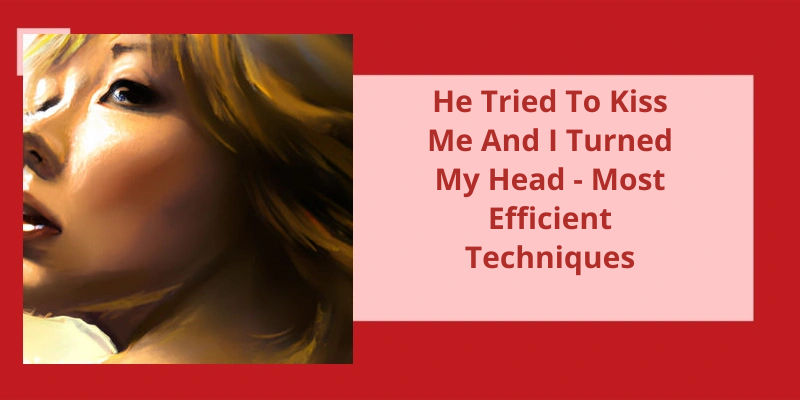Expressing gratitude to someone who’s taken the time to answer your question isn’t only polite, but it can also strengthen professional relationships and pave the way for future collaborations. While the classic “thank you for your prompt response” may feel generic or overused, there are plenty of other ways to show your appreciation without resorting to stale language. Whether you’re communicating via email, text, or in person, finding the right words to thank someone for their help can make all the difference in demonstrating your professionalism and mutual respect. In this article, we’ll explore a variety of ways to say “thank you” that will leave a lasting impression.
Is It Appropriate to Say Thank You for Your Response?
When you receive a response from someone, whether it be an email or a message, it’s always nice to acknowledge their effort. Saying “thank you for your response” is a simple way to show your appreciation and also gives the impression that you value their time and input. In fact, it’s actually considered good etiquette to thank someone for their reply.
If youre concerned that saying thank you might come across as insincere or too formal, don’t worry! It’s perfectly fine to keep it short and sweet. You don’t need to write a lengthy message expressing your gratitude – a simple “thank you for your reply” will suffice. It shows that youre attentive and appreciative, and that you value their input.
One thing to keep in mind is that the timing of your thank you can impact how it’s received. For example, if someone has gone out of their way to provide you with a detailed response and you thank them right away, it might seem like you didnt take the time to fully appreciate their effort. In such cases, it might be better to wait a day or two before responding with a thank you.
Expressing gratitude and appreciation at work is important not only for the person giving the recognition, but also for the person receiving it. It helps to build positive relationships, fosters a supportive work environment, and motivates employees to continue performing well. In this article, we’ll explore some effective ways to say thank you for appreciation at work.
How Do You Say Thank You for Appreciation at Work?
Expressing gratitude is an important aspect of maintaining healthy workplace relationships. Acknowledging and appreciating one anothers work not only fosters a positive and productive environment but also allows for growth and development. When someone compliments you at work, it’s essential to know how to respond effectively.
One simple way to convey your appreciation for the recognition is to smile. A genuine smile expresses thankfulness and can make a colleagues day. It also helps create a positive atmosphere in the office, thereby benefiting everyone around you.
Often, over-exaggeration or elaboration on a compliment can be overwhelming and insincere. Therefore, a simple “thank you” or “I appreciate your kind words” may suffice.
While accepting compliments, it’s vital to stay humble. Your achievements aren’t just a result of your efforts but also of the support and contribution of others. It’s crucial to acknowledge and share the credit with your colleagues and team members who’ve aided you in achieving success.
Going out of your way to thank those who’ve acknowledged your work can demonstrate that you acknowledge their recognition, and it isn’t going unnoticed. It can be through small gestures such as a thank you note, a cup of coffee, or just a sincere personal conversation.
Commenting on the task or project can show that youre engaged in the work and open to feedback. A simple response such as “Im glad to hear that you found my work useful” or “I put in the extra effort to ensure the project was a success” can be beneficial.
You can also mention the acknowledgment to others, especially if the compliments were regarding the work and effort of your team. Acknowledging their contribution and dedication can help boost morale and encourage people to continue doing their best.
Responding appropriately to compliments and recognition can’t only foster positivity in the workplace but also promote teamwork and motivate colleagues to continue striving for success. By keeping things simple, staying humble, and acknowledging others, you can create a gratifying work environment for all.
Effective Ways to Show Appreciation for Coworkers
Communicating gratitude towards coworkers can increase job satisfaction and create a positive work environment. Some ways to show appreciation include verbal recognition, gift giving, acts of service, and quality time spent together. It’s important to tailor the form of appreciation to the individual and to be sincere in one’s gratitude.
Expressing gratitude is a universal gesture of politeness and acknowledgement that helps to strengthen relationships and build trust. While saying “thank you” is the most common way of expressing appreciation, there are various other expressions that can be used, depending on the context and your relationship with the recipient. In this article, we will explore some alternative ways of saying thank you in English, from casual expressions like “much appreciated” and “much obliged,” to more formal phrases like “I really appreciate your help” and “I value your support.”
What Else Can You Say Instead of Thank You?
In many cultures, expressing gratitude is an essential part of forming positive relationships. Saying “thank you” is the most commonly used phrase for showing appreciation, but sometimes it may lose it’s meaning if used excessively. Fortunately, English offers alternative phrases and expressions that can be used in different contexts to convey gratitude in sincere and meaningful ways.
One way to express appreciation casually is to say “much appreciated.”. This phrase is a concise way of thanking someone for their help, support, or kindness. It’s often used in informal settings such as between friends or coworkers. It’s a versatile expression that can be used in many different situations, whether receiving a favor or a compliment.
Another way to express gratitude politely is to say “much obliged.”. This phrase is more commonly used in business settings or formal situations.
Another formal way to express appreciation is to say “I value your support.”. It conveys gratitude for someones hard work and dedication and acknowledges their contributions to a certain project or goal.
Whether it’s a casual thank you or a more formal expression of gratitude, choosing the right words can go a long way in making the person feel appreciated and acknowledged.
Cross-Cultural Comparisons on Expressions of Gratitude: How Is Gratitude Expressed in Different Cultures and Languages?
- In Japan, people express gratitude through bowing and saying “arigatou gozaimasu.”
- In the United States, people often express gratitude by saying “thank you” or writing thank you notes.
- In Thailand, people express gratitude through the wai, a traditional gesture where the hands are placed together in front of the chest and a slight bow is made.
- In Mexico, people often express gratitude by saying “gracias” and giving hugs or kisses as a sign of affection.
- In China, people may express gratitude through the practice of giving gifts or red envelopes containing money.
- In India, people often express gratitude through the practice of touching the feet of elders as a sign of respect and thanks.
- In Germany, people may express gratitude by sending flowers or giving small gifts.
- In Brazil, people may express gratitude by saying “obrigado” and making physical contact such as a hug or handshake.
Crafting a professional thank you email can be a powerful way to express your gratitude and maintain strong relationships with colleagues, clients, and acquaintances. It can be an effective tool to foster goodwill and demonstrate your professionalism, but how do you ensure that your thank you email hits all the right notes? Here are some tips to follow when crafting a professional thank you email.
How Do You Write a Professional Thank You Email Example?
I want to take a moment to express my sincerest gratitude for your time and effort in [specific activity or project that the recipient was involved in]. Without your input and guidance, we’d not have been able to achieve the success that we did. Thank you for your contributions and for being an invaluable member of our team.
I want to express my deepest appreciation for the opportunity to [specific opportunity that the recipient provided]. It was truly an honor to experience [positive attribute or experience that the opportunity provided]. Your generosity and kindness are greatly appreciated, and I hope to have the chance to work with you again in the future.
I’m writing to express my gratitude for the support and encouragement that you’ve provided me during [specific challenging situation]. Your words of wisdom and guidance have been a source of comfort and motivation for me, and I can’t thank you enough. Your leadership and mentorship have made a significant impact on my personal and professional growth, and I’m eternally grateful.
In closing, I want to express how much your support and encouragement have meant to me. Your kindness and generosity have been a bright spot in my life, and I’m grateful for the impact that you’ve had on my personal and professional development. Thank you for all that you’ve done, and I hope to have the opportunity to reciprocate your kindness in the future.
While it’s polite to express gratitude when receiving something, there’s a debate whether to say thanks when asking for something. Some people believe that adding unnecessary words can delay interactions and productivity. Let’s explore this topic further.
Should You Say Thanks When Asking for Something?
When it comes to asking for something, saying “thanks” beforehand can certainly be a considerate gesture. It can show that you appreciate the effort or time that the other person is putting in to fulfilling your request. However, it isn’t always necessary or expected.
For example, if you’re asking a coworker to complete a task that they’re required to do as part of their job, it may not be necessary to say “thanks” upfront. It’s expected that they’ll fulfill their duties and you’re simply reminding them of the task. Of course, if they do complete the task, it would still be polite to say “thanks” afterward.
While it’s often a kind gesture, it isn’t mandatory and may not always be appropriate. What’s most important is being clear and polite in your request, and showing gratitude if the person does fulfill your request.
Of course, there are other ways to show appreciation as well. If the person fulfills your request, you could follow up with a thank-you note or small token of appreciation. This can go a long way in maintaining positive relationships and fostering goodwill.
At the end of the day, it’s all about striking a balance between being respectful and considerate of others” time and energy, while also being efficient and getting things done. If saying “thanks” feels appropriate in the moment, go for it. But if you need to keep it short and sweet, that’s okay too. The key is finding the right approach for the situation at hand.
The Cultural Differences in Expressing Gratitude When Asking for Something in Different Countries.
- In Japan, it’s customary to bow deeply and express thanks when making a request.
- In China, a small gift may be given as a way of expressing gratitude when asking for something.
- In the United States, saying “please” and “thank you” is considered polite when making a request.
- In some Middle Eastern countries, it’s common to express gratitude by offering tea or other refreshments.
- In India, touching the feet of an elder or someone of higher status is a way of showing respect and gratitude when asking for something.
Source: Why do some people say ‘Thank you for asking’ when …
Conclusion
Whether it's a quick email or a handwritten note, taking the time to thank someone for their help and expertise won’t only leave a positive impression, but it will also encourage continued collaboration and communication. So next time you receive a response to your inquiry, don't hesitate to express your gratitude and appreciation – it may just make the recipient's day.






